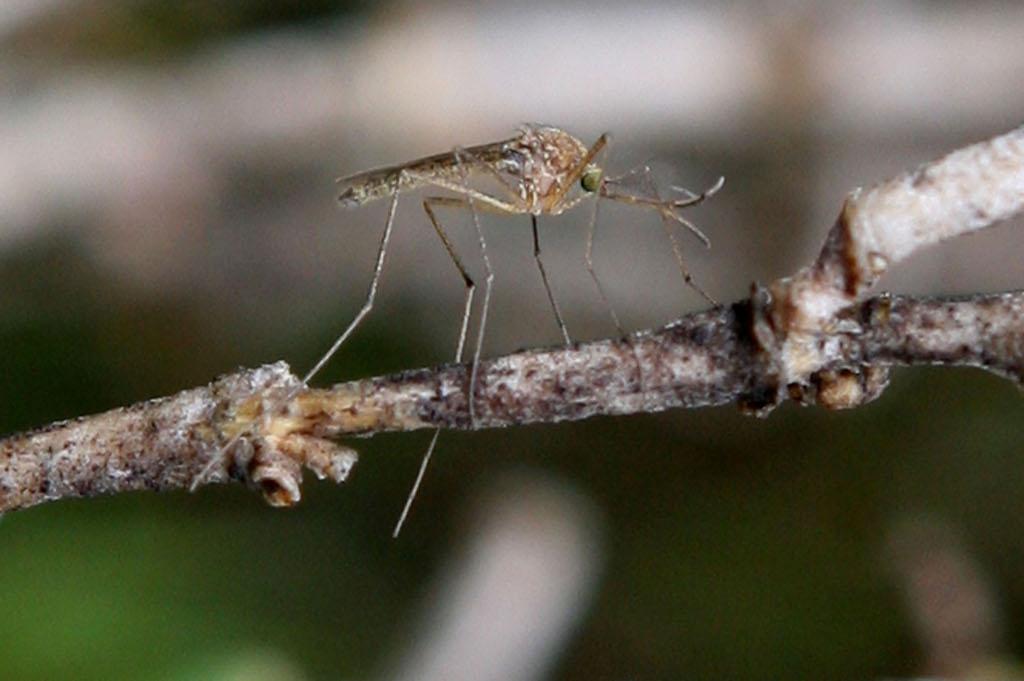A cure for malaria? New vaccine could save millions of lives
Your days are numbered, pal.
JOHANNESBURG, South Africa — In what could be a game changer for one of the world’s deadliest diseases, scientists say a vaccine against malaria may finally be within reach.
So far, a malaria jab has proved elusive. But an experimental vaccine has shown promise in protecting children against the deadly malaria parasite. The company that makes the vaccine, GlaxoSmithKline, says it will move to have it distributed commercially within two years.
This would be a major step forward in efforts to fight malaria, a mosquito-borne parasitic disease that kills as many as a million people every year, most of them babies and children in sub-Saharan Africa.
“Many millions of malaria cases fill the wards of our hospitals,” said Halidou Tinto, one of the study’s principal investigators, based in the West African country of Burkina Faso.
“Progress is being made with bed nets and other measures, but we need more tools to battle this terrible disease,” Tinto said.
News of the potential malaria vaccine comes as international experts meet this week in the coastal city of Durban, South Africa, with many discussions focused on the pernicious problem of drug-resistant malaria strains.
Artemisinin-based drugs are now the only effective means of malaria treatment widely available. But quality problems abound.
Researchers last year warned that many anti-malaria drugs in Africa are of low quality, some of them fakes from China, and may actually be accelerating the toll of the disease by leading to drug resistance.
Studies found that up to 15 percent of all malaria drugs bought in Africa failed basic quality testing. Some of the medicines were counterfeit, while others contained too little of the active ingredient to cure the patient — and leading to parasites mutating into stronger strains.
More from GlobalPost: Malaria drugs in Africa are often Chinese fakes, new study says
David C. Kaslow, vice president of product development at the nonprofit PATH Malaria Vaccine Initiative, said the clinical trial shows that a malaria vaccine could be an important additional tool to combat the disease.
GlaxoSmithKline is developing the malaria vaccine — known by the catchy code name of RTS,S — in cooperation with PATH, which receives funding from the Bill & Melinda Gates Foundation.
“Given the huge disease burden of malaria among African children, we cannot ignore what these latest results tell us about the potential for RTS,S to have a measurable and significant impact on the health of millions of young children in Africa,” Kaslow said.
But there are concerns about the efficacy of the vaccine. Results from its clinical trial, which involved 15,000 babies and children in seven African countries, were less than ideal.
The vaccine was shown to cut the number of malaria cases in children aged 5-17 months by up to half after their first vaccination, and to reduce by around a quarter the malaria cases in infants aged 6 to 12 weeks.
Trial results showed that the vaccine continued to protect young children and infants up to 18 months after vaccination, but the effectiveness declined thereafter.
Researchers are now investigating whether a booster shot after vaccination could increase protection against malaria in the longer term.
GlaxoSmithKline said it plans to submit a regulatory application for RTS,S to the European Medicines Agency, which will evaluate the malaria vaccine's safety and effectiveness, next year.
The World Health Organization has indicated that it may make an official recommendation on use of the vaccine as early as 2015, hinging on whether it is granted a positive scientific opinion by the European agency. This could potentially fast-track licensing of the drug for African countries.
Professor Eleanor Riley from the London School of Hygiene and Tropical Medicine told Sky News that if the vaccine is cheap enough, it has huge potential.
“It would be great if the vaccine had 80-90 percent efficacy,” Riley said. “But it has taken us 15 years to get this far with this vaccine,” she added.
“The question is: can we wait another 15 years before we roll out a vaccine that is going to save lives?”
Every day, reporters and producers at The World are hard at work bringing you human-centered news from across the globe. But we can’t do it without you. We need your support to ensure we can continue this work for another year.
Make a gift today, and you’ll help us unlock a matching gift of $67,000!
